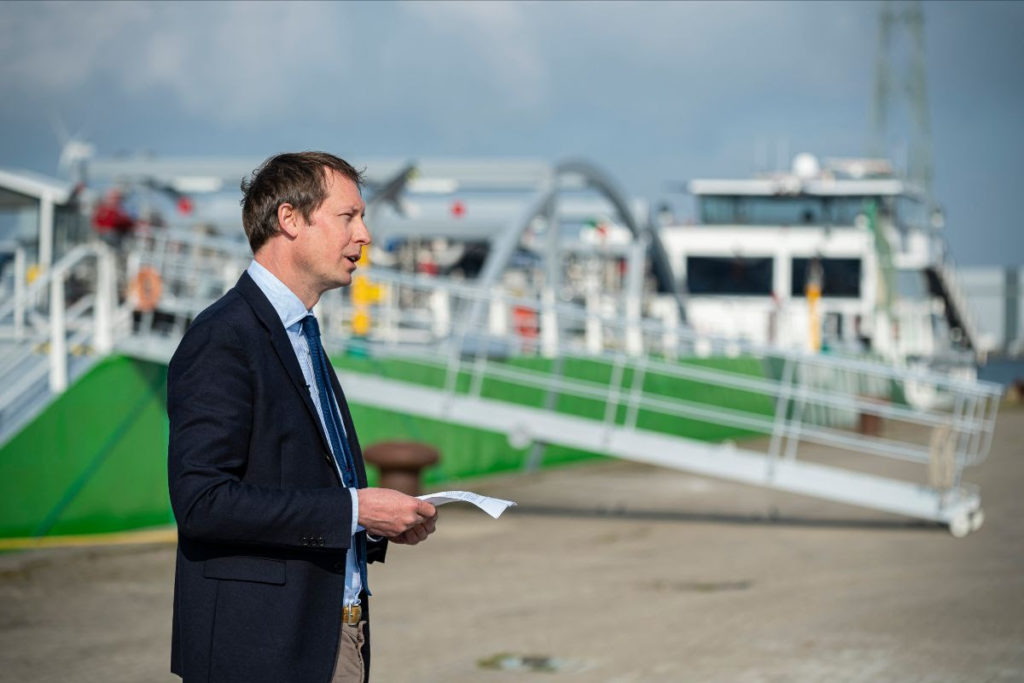Titan LNG, a Dutch LNG bunkering business, is looking for investors to help finance the construction of a new LNG (liquefied natural gas) bunkering vessel to increase the supply of bio-LNG to the shipping sector, the company’s commercial director for marine, Michael Schaap, told Climate Transformed in an exclusive interview.
The challenger company plans to develop a 4,200 m³ refuelling vessel equipped with multiple tanks to split cargoes of conventional LNG and bio-LNG as demand for more sustainable shipping fuels continues to rise. The so-called Krios vessel is aimed at supplying the Belgian port of Zeebrugge as well as ports in the English Channel, Schaap said in an interview.
“For financing we are talking to various stakeholders and we are still open for other investors,” he said. The vessel is expected to start operating in 2023 and will feature high-tech cargo conditioning equipment and two bow thrusters that improve manoeuvering in tight harbour locations.
Demand for cleaner marine fuels has risen sharply since the start of 2020 when new International Maritime Organisation rules entered into force to lower emissions of climate-harming sulphur in shipping. Adapting engines to LNG propulsion is one of the alternatives chosen by shipowners to reduce sulphur content and other greenhouse gas (GHG) emissions. LNG, which is the super-cooled form of natural gas, emits close to zero sulphur and its GHG emissions are up to 21% lower than oil-based marine fuels. The LNG bunkering market is expected to grow rapidly. Oil major Total, one of the sector’s frontrunners, is forecasting 10 million tonnes of global demand by 2025, which will be equivalent to more than 10% of the global bunkering market by 2030.
Titan LNG, which was founded in 2012, has bold growth plans, aiming to expand its fleet of LNG bunker vessels from three to more than 10 by the middle of the decade. “The more ports we can unlock the better it becomes for customers trading spot so they can bunker LNG anywhere. I do see a lot of potential here,” Schaap said.
The company is currently close to finalising financing for another state-of-the-art vessel, the 8,000m³ Hyperion propelled by LNG itself, which will serve the Amsterdam-Rotterdam-Antwerp region. “[In our latest funding round] we’ve seen that the market has matured significantly and that there is more green money available. We see that banks are interested and that the lot sizes of the investments are also bigger,” Schaap said.
Geographically, Titan LNG is looking to expand into the Mediterranean but Schaap is cautious about widening the company’s reach too far. “We have to recognise that although we’ve grown considerably we can’t do everything. I can’t see us ending up far away in Asia or south America yet because we do need the local knowledge.”

